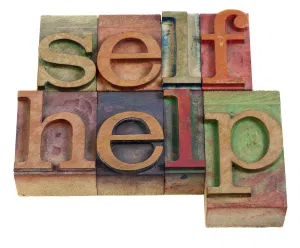FIVE KEYS TO MAKING YOUR SELF-HELP BOOK A HUGE SUCCESS
Wrapping up a book project is always bittersweet for me. As a developmental editor, I’m like a book’s “midwife”: I’m happy to see the baby born into the world, but sad that my role in helping the author go from a book idea to a book is over. After a book is completed, I try to take some time to revel in the pleasure of having helped yet another author get that book written and ready for publication. Then, I take some time to ponder what I learned from the experience. One of my most recent projects yielded the following testimonial, which hints at five keys to making your self-help book a huge success:
“I have longed dreamed of the day when writing a book wouldn’t be so difficult. When I discovered Nancy, that dream became a reality. She is a treasure whose organizational, research, and editorial skills are unmatched. Plus she’s fun!!” Christiane Northrup, MD, author of Goddesses Never Age: The Secret Prescription for Radiance, Vitality, and Well-Being
What a marvelous endorsement! I’m deeply grateful to Dr. Christiane Northrup for her enthusiastic words. She’s always been a cultural innovator and knows how to connect her message with a book-buying audience.
So what are the five keys to making YOUR self-help book a huge success?
1. Have fun. Seriously, have fun. Don’t believe all those quotations by writers who talk about the agony of writing. If writing is agony for you, you need to look at why you’re doing it and what you need to heal in yourself to make the process a joy. Does your inner critic need to pipe down? Maybe you need to say, “Thank you for your concern, but I’m an excellent writer, and I need you to go away right now.” (Do a little “goblin work,” as Colette Baron-Reid describes in her book The Map, and see if that inner critic that intimidates you can be tamed!)
2. Don’t be afraid to break with your brand if your followers have given you clear signals they’re with you. Dr. Northrup was willing to take the risk of making her latest book incorporate more spirituality and metaphysics. She is in touch with her loyal followers on a daily basis through social media (she’s very active on Facebook) and tries out ideas to see how her followers react. She notices what resonates for them. That’s what gave her the courage to shift her brand in a new direction. Yes, it’s a risk, but it’s a risk based on her knowing her “peeps”!

3. Be in touch with your followers and treat them like treasured friends. Yes, it’s time consuming to post on social media and interact with those who contact you, and heaven knows Facebook can be a time suck! But if your followers are willing to spread the word about your work, share announcements, and enthusiastically endorse you, take the time to acknowledge them when they contact you. You don’t have to respond to every single comment, but you do have to INTERACT with your fans. On Facebook, even big bestselling authors like Dr. Northrup and Marianne Williamson will reply to their followers. Do the same and when your book comes out, your fans will be eager to spread the word.
4. Do your research. It’s easier than ever to do research thanks to the internet. Check the original source of any quote by using Google Books and Amazon’s “search inside this book” feature. Use Google Scholar to locate original studies (and use ScienceDaily.com to get a sense of what’s out there and read a layman’s version of the research findings). If you want to check a fact or quote and find that the excerpts online are too short to allow you to see the context, order the book from your library using their website. Don’t just rely on your memory about something you “read somewhere.” Check your facts and see if there’s new research, too.
5. Organize and structure your book before you get too far into writing it. I can’t emphasize this enough: Don’t just write and write and then try to figure out how to structure what you’ve written. Get clear on your chapter outline first. Know what goes within each chapter. Work off outlines for each chapter. Writing an expanded chapter outline for a book proposal, even if you end up self-publishing the book, is a great way to start organizing and structuring your material. Also, you might want to check out my advice on how to structure a self-help book, which can be adapted for a parenting or business book.
Are you inspired to get help with structuring and conceptualizing your book? Are you ready for a vision plan call with me?

Nancy Peske is a ghostwriter, developmental editor, and book publishing consultant who has done editorial work on books including bestsellers and award-winners for over 30 years.